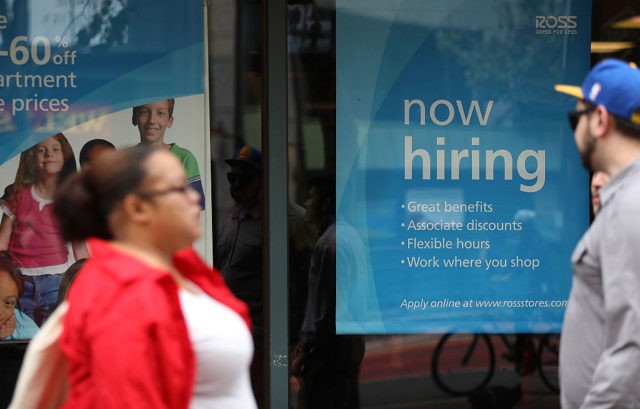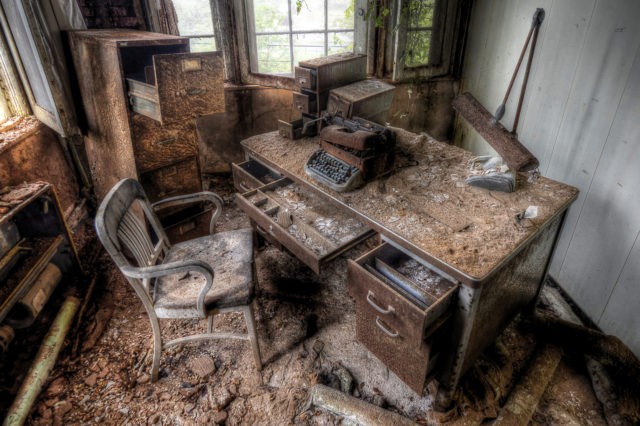U.S. Chamber of Commerce Calls For End of Additional $300 Weekly Unemployment Benefits After Joe Biden’s Poor Jobs Report

The U.S. Chamber of Commerce called on Congress Friday to terminate the additional $300 weekly unemployment benefits after Joe Biden’s poor April jobs report.
The Chamber’s Chief Policy Officer Neil Bradley stated in a release:
The disappointing jobs report makes it clear that paying people not to work is dampening what should be a stronger jobs market. We need a comprehensive approach to dealing with our workforce issues and the very real threat unfilled positions poses to our economic recovery from the pandemic. One step policymakers should take now is ending the $300 weekly supplemental unemployment benefit. Based on the Chamber’s analysis, the $300 benefit results in approximately one in four recipients taking home more in unemployment than they earned working.
Breitbart News’s John Carney reported that the April numbers could reflect less hiring by “enhanced unemployment benefits,” as numerous businesses say “they cannot hire enough workers to fill positions because of the government’s enhanced unemployment benefits program.”
South Carolina Gov. Henry McMaster (R) echoed the Chamber’s concerns in a Thursday statement:
This labor shortage is being created in large part by the supplemental unemployment payments that the federal government provides claimants on top of their state unemployment benefits. What was intended to be a short-term financial assistance for the vulnerable and displaced during the height of the pandemic has turned into a dangerous federal entitlement, incentivizing and paying workers to stay at home rather than encouraging them to return to the workplace.
The reaction to the Chamber’s demand to end the extra weekly benefits of $300 varied on Twitter:
Carney also wrote, “the U.S. economy added just 266,000 jobs in April and the unemployment rate ticked up to 6.1 percent, the Labor Department said in its monthly labor assessment Friday, smashing expectations.”
Carney: Why Businesses Might Not Raise Wages Despite Labor Shortage

When businesses complain they cannot find enough workers to fill open positions, the standard response is that they should raise wages to make working for them more attractive.
That might not work now.
In fact, many employers are likely to hold off on wage hikes even if that means their payrolls expand more slowly than they would like.
That’s because many business owners believe that enhanced unemployment benefits, which pay an extra $300 per week, are creating a labor shortage. But that labor shortage is likely to be temporary because the American Rescue Act, passed in March, extended the enhanced benefits only through September.
That means that it is likely that in just a few months, there will be millions of more Americans willing to work for less than they will work for today.
It’s not people do not want to work or do not understand that in the long-run they are better off employed than on the dole. It’s just that right now, the enhanced unemployment benefits pay so much that workers rationally choose to take the higher income for a few more months, quite reasonably expecting they will be able to find work when the enhancement expires.
Jobless benefits in some states top $20 per hour. Indeed, in Washington state out-of-work residents can receive as much as $28 per hour. An employer seeking to get someone getting paid that much not to work not only has to offer more—she has to offer a lot more. Many people will quite rationally choose to not have to do any work at all for a few months while getting $17 per hour than work for $20 per hour. The enhancements have raised what economists call the “reservation wage”—the amount it takes to get someone to give up an hour of their leisure—beyond what many businesses can afford to pay.
Someone getting the maximum benefit in Iowa, for example, is receiving the equivalent of close to $20 per hour. That’s amounts to an annual salary of around $41,000. For a lot of people, that’s enough not just to get by but to live well. It’s $10,000 over the median income in Iowa. At that level of unemployed income, for many people the “reservation wage” becomes almost infinite. There’s almost nothing you can do to get someone getting that much money back to work—except lower the benefits.
Remember, ultimately what controls wages is the ability and willingness of consumers to pay for the final product, whether that is a car or a meal in a restaurant. If labor is so scarce that an employer would lose money hiring at the going rate, the job will remain vacant.
So why not raise wages temporarily to bring on new workers? That’s harder than it sounds. In the first place, many businesses cannot, as a practical matter, raise wages only for new workers. A pay hike to attract sidelined workers typically must be given to the entire payroll.
More importantly, wages are sticky. Employers find it very difficult to lower wages for workers. Doing so often prompts workers to leave for other jobs and can kill employee morale. That’s probably especially true if workers are hired at one wage in the spring and told in the fall that they’re getting a pay cut.
In other words, in a situation where the labor supply is temporarily and artificially depressed by government policy, many businesses will choose to wait it out rather than irrevocably raise labor costs.
The result is that enhanced jobless benefits are likely to depress employment without raising wages for workers.
No comments:
Post a Comment